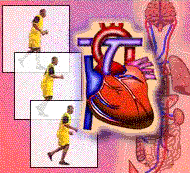Neurosis of the heart is an increasingly used term to describe anxiety disorders that occur with simultaneous somatic symptoms in the heart area. A person who develops its symptoms notices not only mental problems such as feeling stronger, difficult emotions, or anxiety and irritability, but also somatic symptoms associated with the development of the disease.
Someone who suffers from neurosis reports to doctors of various specialties with various ailments from the digestive, excretory, respiratory and circulatory systems. An increasingly noted symptom experienced by patients with neurosis are cardiac disorders, and this is the topic that this article will be about.
Anxiety can manifest itself in various forms. Even people who are completely healthy, feeling fear, even before public speaking, automatically notice the physical symptoms of this emotion in themselves. These include the most common sweating, dilated pupils, increased heart rate and breathing. People who suffer from neurosis, in addition to these physiological symptoms, also observe ailments similar to those occurring in the course of somatic diseases.
First of all, if the patient observes disturbing symptoms, he looks for their cause and confirmation of his health in tests, but in vain, because the test results do not confirm the presence of a somatic disease.
So how do you recognize the disease? The most common reported by people suffering from heart neurosis symptoms are characteristic of many of them, including chest pain, heart problems, breathing difficulties, shortness of breath, tightness in the chest, stomach pain, diarrhoea, constipation, cough, excessive or difficult urination, and indigestion .
In each patient, however, they have a specific, characteristic course. Some feel pain in one place, others feel a wandering pain, or burning, squeezing or unclenching. Unfortunately, these symptoms cause the patient’s mental ailments to worsen, which leads to the deterioration of his health, and may even lead to a situation where he develops fear of fear itself.
For a patient who experiences heart palpitations, this is a very serious problem. Such an accelerated heart rate may cause the patient a sense of weakness, because he does not know what is happening to him, additionally, these physical sensations cause the build-up of internal tension and, closing the vicious circle, intensify the feeling of anxiety, which deepens the physiological ailments. People suffering from neurosis of the heart usually associate them with specific situations that pose a threat to them, so they try to avoid them, forcing themselves to isolation, which can also lead to an aggravation of problems with neurosis of the heart. Therefore, it is very important to diagnose the problem and treat it to prevent the patient from falling into persistent anxiety. Intensification of anxiety, on the other hand, causes an increase in somatic symptoms.










